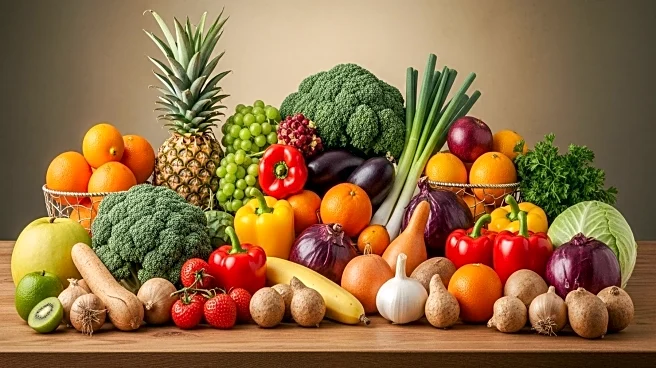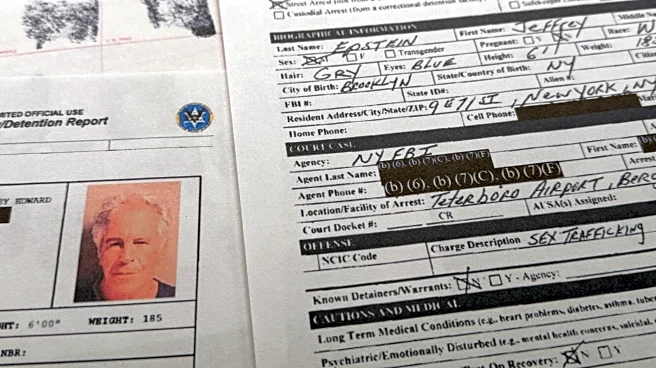What is the story about?
What's Happening?
The European Union has approved a draft version of the EU-Mercosur trade deal after 25 years of negotiations. This agreement aims to reduce or eliminate tariffs on various products, including wines, spirits, chocolate, and soybeans, while protecting 344 European geographical indicators. The deal also incorporates EU animal welfare standards for imports such as eggs, requiring compliance certificates for tariff preferences. The agreement is expected to significantly impact the food industry in Europe by removing trade barriers and promoting cooperation on sustainability and animal welfare. France, previously opposed to the deal due to concerns about competition, has softened its stance following the introduction of bilateral safeguards to protect EU farmers.
Why It's Important?
The EU-Mercosur trade deal holds significant implications for European agriculture and food industries. By reducing tariffs, the agreement is expected to enhance market access for European products in Mercosur countries, potentially boosting exports. The protection of geographical indicators ensures that European products maintain their authenticity and market value. Additionally, the deal's focus on animal welfare and sustainability aligns with broader EU policy goals, promoting ethical standards in international trade. However, the agreement also poses challenges for European farmers, who may face increased competition from Mercosur imports. The introduction of safeguards aims to mitigate these risks, ensuring that EU farmers can compete fairly in the global market.
What's Next?
The EU-Mercosur trade deal must still be approved by the European Parliament before it can be fully implemented. As the agreement progresses, stakeholders in the agricultural and food sectors will likely monitor its impact on trade dynamics and market competition. The European Commission's commitment to protecting farmers through market monitoring and potential tariff suspensions will be crucial in addressing any adverse effects. Additionally, ongoing cooperation between the EU and Mercosur on sustainability and animal welfare standards may lead to further policy developments and collaborative initiatives.

















